Shares in focus: Who to back in the supermarket wars
Morrisons has declared a price war on its supermarket rivals. Will there be any winners, and who should you back? Phil Oakley investigates.
Get the latest financial news, insights and expert analysis from our award-winning MoneyWeek team, to help you understand what really matters when it comes to your finances.
You are now subscribed
Your newsletter sign-up was successful
Want to add more newsletters?

Twice daily
MoneyWeek
Get the latest financial news, insights and expert analysis from our award-winning MoneyWeek team, to help you understand what really matters when it comes to your finances.

Four times a week
Look After My Bills
Sign up to our free money-saving newsletter, filled with the latest news and expert advice to help you find the best tips and deals for managing your bills. Start saving today!
Beware they're all cheap for a reason, says Phil Oakley.
Supermarket group Morrisons is in big trouble, but it only really has itself to blame. Customers who were flocking to its stores five years ago to buy good-quality fresh food and pick up a few bargains along the way have decided to go elsewhere.
Morrisons has been too late to recognise that people are using different ways to buy their groceries, such as over the internet and in local convenience stores. It has also alienated its customers by trying to go upmarket in essence chasing customers who were unlikely to come to Morrisons anyway.
MoneyWeek
Subscribe to MoneyWeek today and get your first six magazine issues absolutely FREE

Sign up to Money Morning
Don't miss the latest investment and personal finances news, market analysis, plus money-saving tips with our free twice-daily newsletter
Don't miss the latest investment and personal finances news, market analysis, plus money-saving tips with our free twice-daily newsletter
According to Morrisons' chief executive, Dalton Philips, there's an even bigger problem: cheap discount supermarkets Aldi and Lidl are eating its lunch. Last week, Philips hit the panic button and announced that Morrisons would slash prices to take them on. Profits in 2014 would probably halve as a result.
Unsurprisingly, the stock market didn't like the sound of this. Investors started to worry about the prospect of a supermarket price war and the damage it could do to profits. The share prices of Morrisons, Sainsbury's and Tesco tanked.
Is this an overreaction that has created a buying opportunity? Or is the world of food retailing going to be transformed forever, with lower returns to be expected from now on?
How's business?
Both have been able to win over a lot of cash-strapped customers with low prices. They have been able to do this by having cheaper, smaller stores and a much narrower product range to concentrate their buying power.
At the top end of the market, Waitrose has been wooing an increasing number of customers due to what's perceived to be its higher-quality food. According to Kantar Wordpanel, a market-research firm, these three companies have grabbed an extra 3.5% of the UK grocery market (see table) over the last three years equivalent to £4.4bn of sales.
Although the value of the market has been growing, because the price of food has been going up, the big losers have been Tesco and Morrisons. Sainsbury's has been holding its own.
But is Philips right when he says that the market is changing forever? It might have changed for Morrisons more than for some of its competitors. Given that the bulk of Morrisons' stores are still in the north of England, where customers tend not to be as well off as those in the south, it has been more exposed to the rise of Aldi and Lidl.
And just how big can the two discounters become? At the moment they have 7.5% of the market. No one is currently predicting that they will end up having 15% or 20% in a few years' time.
Who will they take customers from?It's difficult to see Waitrose and Marks & Spencer customers changing supermarkets. Sainsbury's seems to be keeping its customers happy with its products and price match promises and has lots of stores in the more affluent south.
Both Tesco and Wal-Mart-owned Asda have immense buying power and could and might compete on price if they need to. The Co-op remains an easy target, although its many local convenience stores are an advantage.
That leaves Morrisons. It doesn't have the buying power of its three big competitors, but does make a lot of its own food. It needs to get back to making this a key point of difference. The danger is cutting prices won't bring the customers back and profits will remain lower permanently.
How the big players compare
| Tesco | 28.7% | 29.6% |
| Asda | 17.5% | 17.8% |
| Sainsbury | 17% | 17% |
| Morrisons | 11.1% | 11.8% |
| Co-op | 6.1% | 6.2% |
| Waitrose | 5% | 4.9% |
| Aldi | 4.3% | 3.3% |
| Lidl | 3.2% | 2.8% |
Source: Kantar Worldpanel
Are supermarket shares cheap?
The shares are now offering pretty chunky dividend yields, while Morrisons and Sainsbury's are even trading below their respective net asset values (a price-to-book-value, or P/BV, of less than one see table below).
| Morrisons | 208 | 11.82 | 6.56% | 0.90 | 1.29 | 7.64% |
| Sainsbury's | 314.5 | 9.65 | 5.66% | 0.95 | 1.83 | 9.90% |
| Tesco | 301.39 | 10.46 | 4.91% | 1.29 | 1.95 | 12.31% |
Let's take the dividend issue first. Morrisons is trying to keep shareholders happy by promising to increase dividends. Yet, based on its forecast profits (earnings per share of 17.6p), the ability to pay that dividend is becoming more stretched as shown by its low dividend cover.
Morrisons is also looking to get its dividend cover back to two times. With an expected dividend payout of 13.65p per share, this implies earnings per share of 27.3p, or 55% more than it is expected to make this year. At best, Morrisons' dividend looks like it won't grow much.
A more likely scenario is that it will be cut.The big yield could be a trap. Sainsbury's and Tesco's dividends look more secure, but probably won't grow much.
Moving on to asset values, much has been made of the value of the supermarkets' property portfolios. Not so long ago, analysts used to speculate about how a huge amount of value could be realised by supermakets splitting themselves into real-estate investment trusts (Reits), which could then lease the stores back to the supermarket chain.
The logic was that the rental income of the Reit would be valued more highly and that this would make both businesses worth more separately than than they would be worth together.
Any property firm would probablyhave to be financed with lots of debt, which might be hard to come by. Rising interest rates could cause problems and would also lower the value of the property. You also have to consider the ability of the tenant to pay the rent. For a firm such as Morrisons, whose profits are falling, this could become a major problem.
So are any of them a buy?
Low or modest returns on shareholders' equity (ROE) suggests that at the moment there isn't a lot of extra value on offer in the sector. In fact, Morrisons has written down the value of its properties and may be forced to do so again.
In general, supermarkets look to be horrible investments right now and deserve to be cheap.
Verdict: avoid
Get the latest financial news, insights and expert analysis from our award-winning MoneyWeek team, to help you understand what really matters when it comes to your finances.
Phil spent 13 years as an investment analyst for both stockbroking and fund management companies.
-
 Should you buy an active ETF?
Should you buy an active ETF?ETFs are often mischaracterised as passive products, but they can be a convenient way to add active management to your portfolio
-
 Power up your pension before 5 April – easy ways to save before the tax year end
Power up your pension before 5 April – easy ways to save before the tax year endWith the end of the tax year looming, pension savers currently have a window to review and maximise what’s going into their retirement funds – we look at how
-
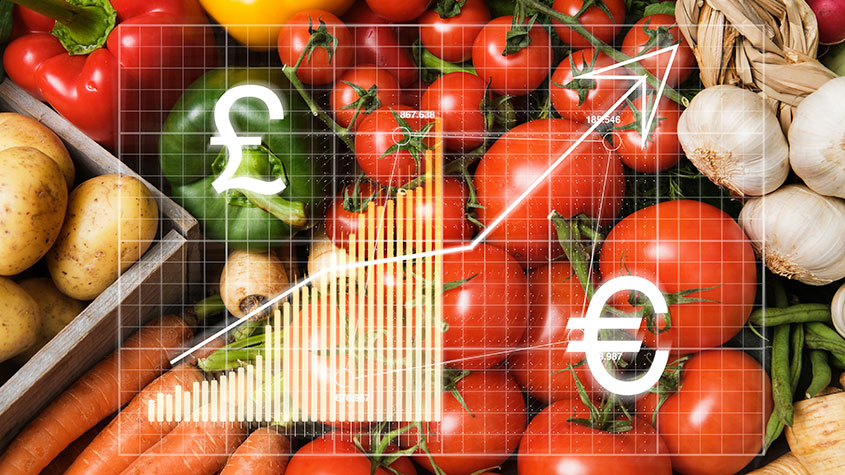 How to profit from rising food prices: which stocks should you invest in?
How to profit from rising food prices: which stocks should you invest in?Tips Food prices are rising – we look at the stocks to avoid and the one to invest in this sector.
-
 Tesco looks well-placed to ride out the cost of living crisis – investors take note
Tesco looks well-placed to ride out the cost of living crisis – investors take noteAnalysis Surging inflation is bad news for retailers. But supermarket giant Tesco looks better placed to cope than most, says Rupert Hargreaves.
-
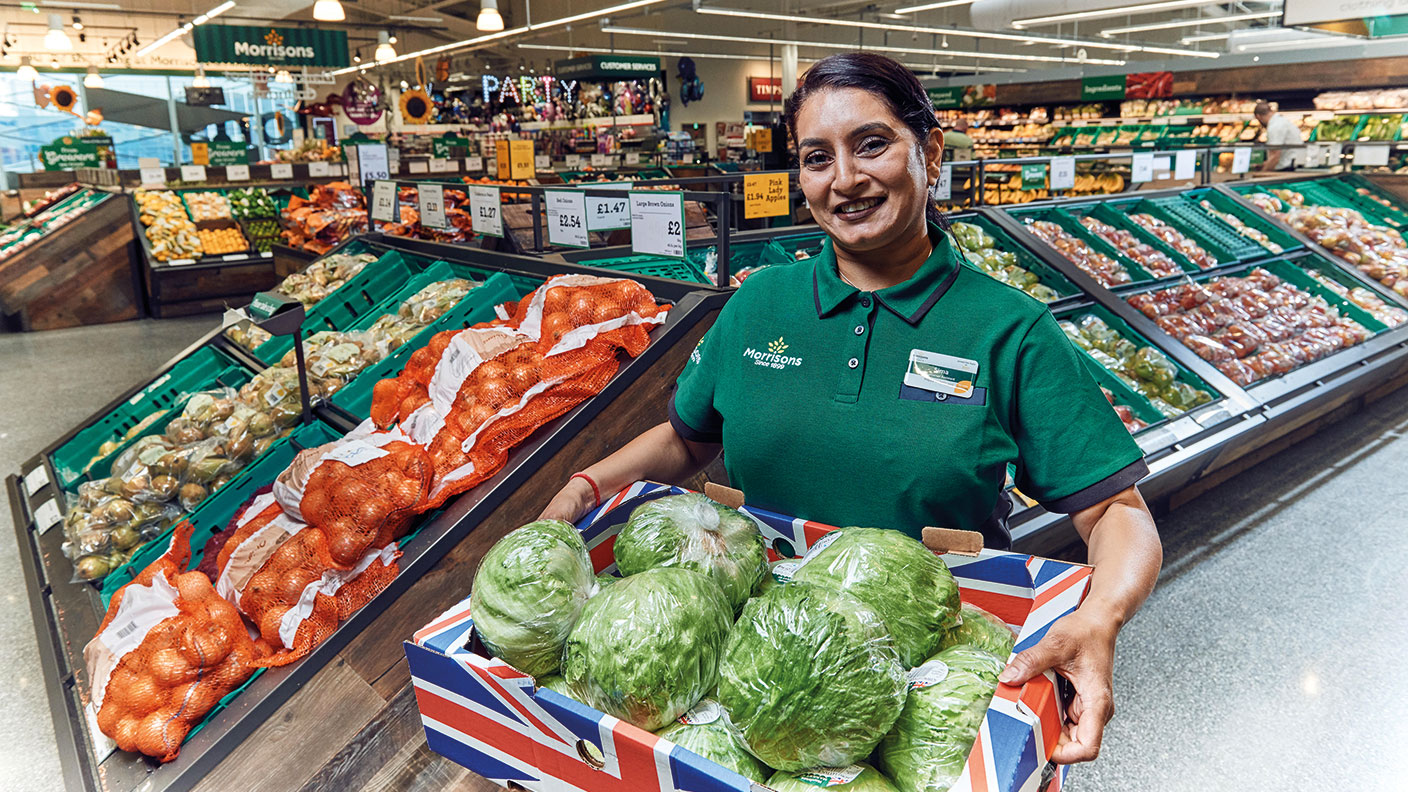 Morrisons takeover bid: supermarket is an attractive target for private-equity buyers
Morrisons takeover bid: supermarket is an attractive target for private-equity buyersNews A private-equity group has made an offer for Morrisons, Britain’s fourth-largest supermarket. Other bids are likely to emerge. Matthew Partridge reports.
-
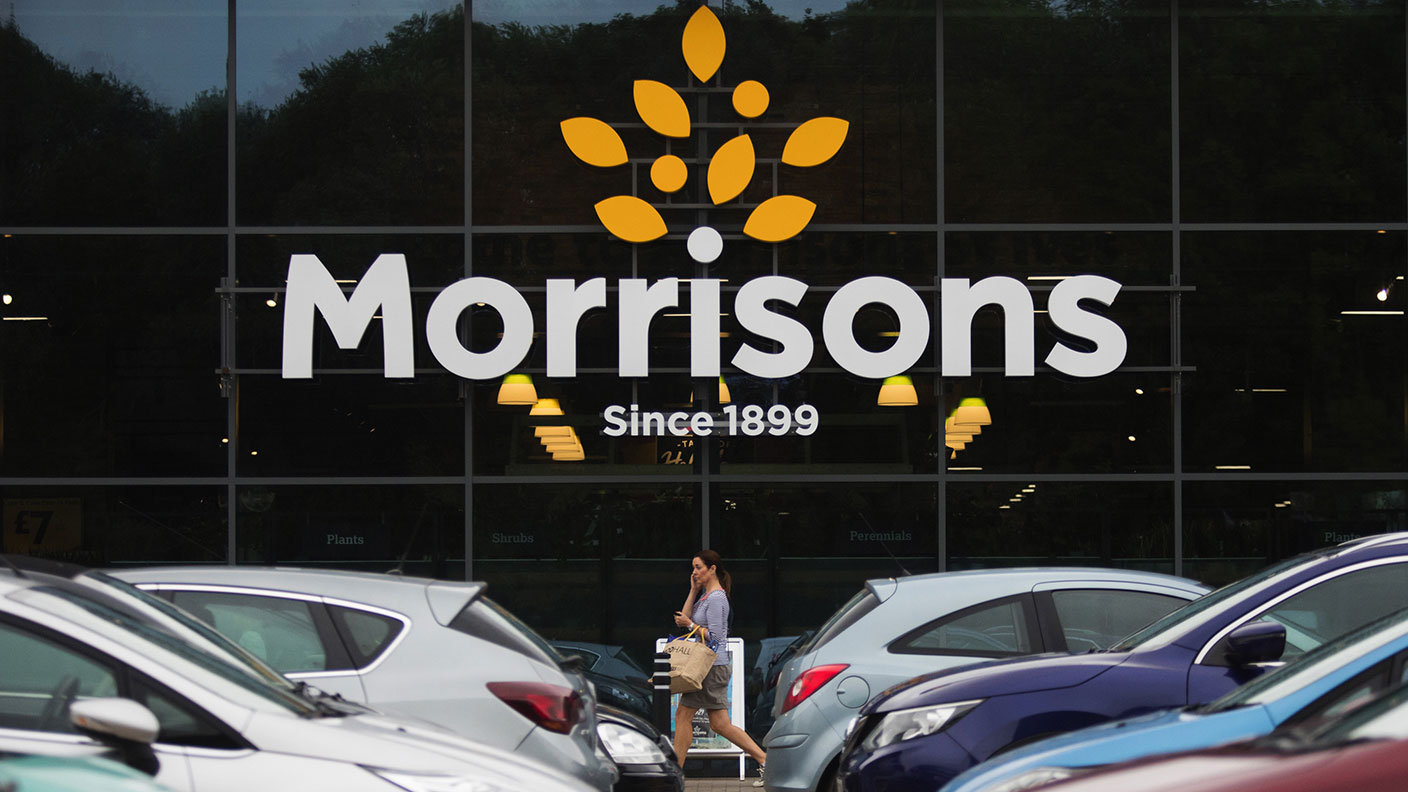 Morrisons is just the start – get ready for a private equity feeding frenzy
Morrisons is just the start – get ready for a private equity feeding frenzyAnalysis The bid to buy the Morrisons supermarket chain is the latest example of UK listed companies being snapped up by private equity groups. It won’t be the last, says John Stepek – we could well see a feeding frenzy before this is all over.
-
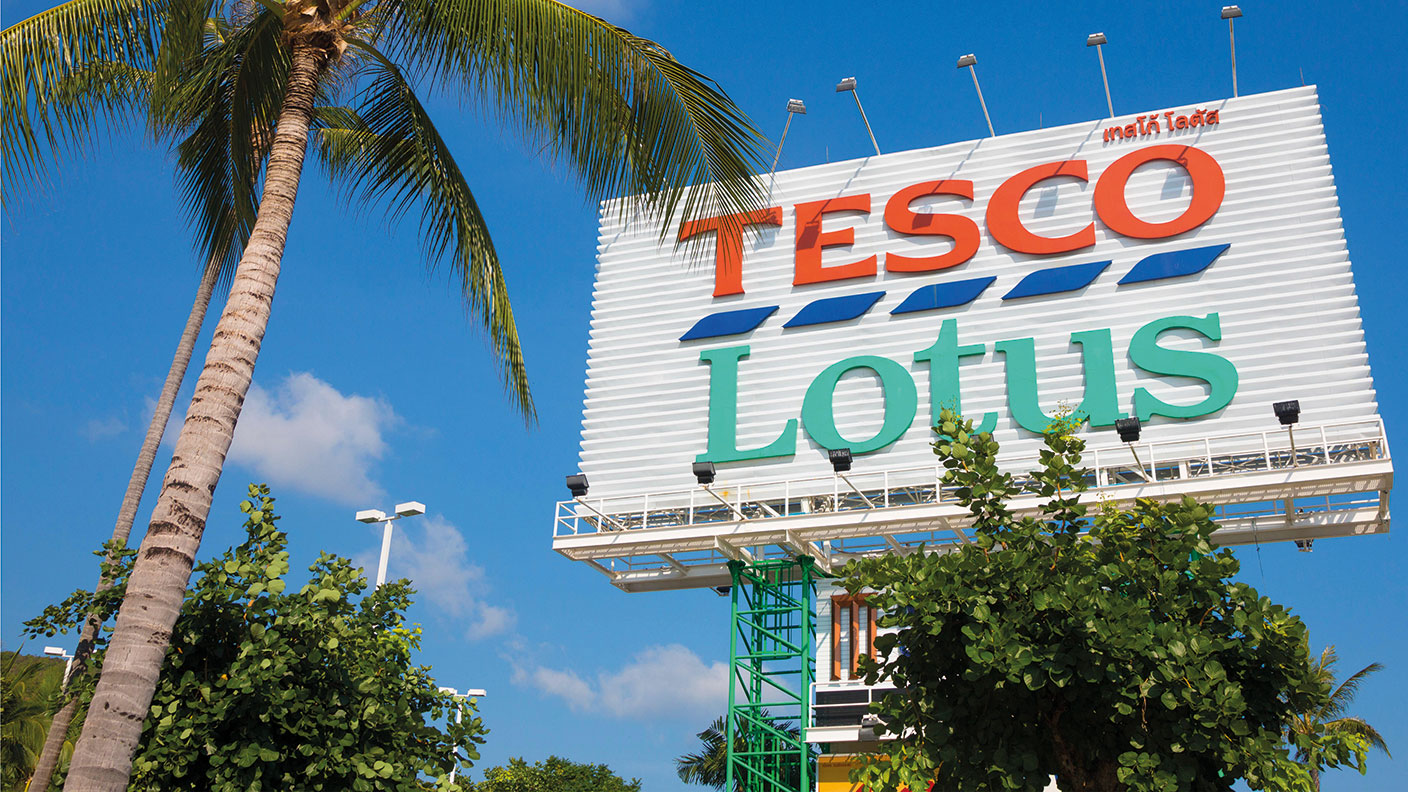 Tesco sells its retail subsidiary in Thailand and Malaysia for £8bn
Tesco sells its retail subsidiary in Thailand and Malaysia for £8bnNews Tesco has agreed to sell its southeast Asian operations to Thai conglomerate Charoen Pokphand for £8.2bn in cash.
-
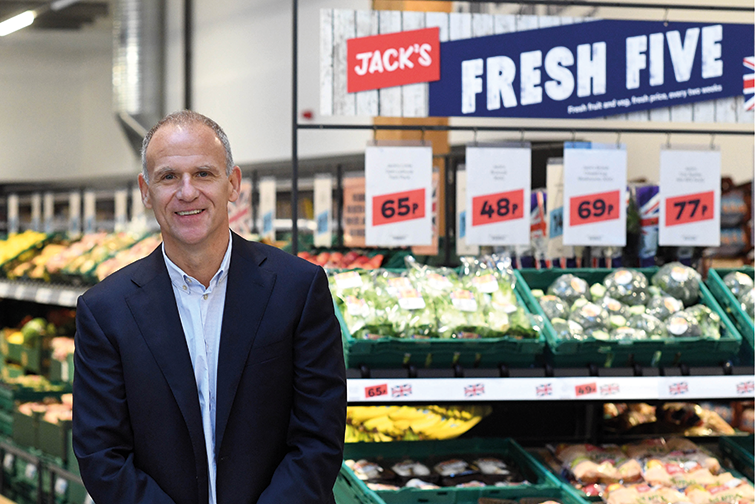 Tesco should keep its Asian assets
Tesco should keep its Asian assetsOpinion The £7bn that Tesco could get for its Tesco Lotus business in Asia looks enticing. But holding on to it would be smarter, says Matthew Lynn.
-
 Tesco wields the axe
Tesco wields the axeFeatures Britain’s biggest supermarket is cutting back on staff and fresh food. Will the move prove counterproductive? Matthew Partridge reports.
-
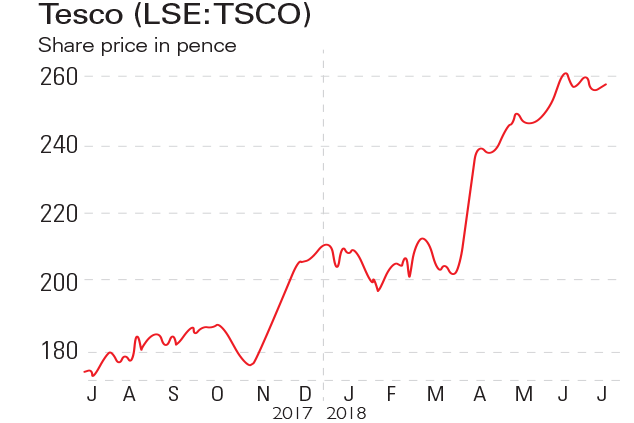 If you'd invested in: Tesco and Associated British Foods
If you'd invested in: Tesco and Associated British FoodsFeatures Tesco has seen its market value rise almost 50% in a year, while AB Foods has seen shares slide despite a rise in profits.